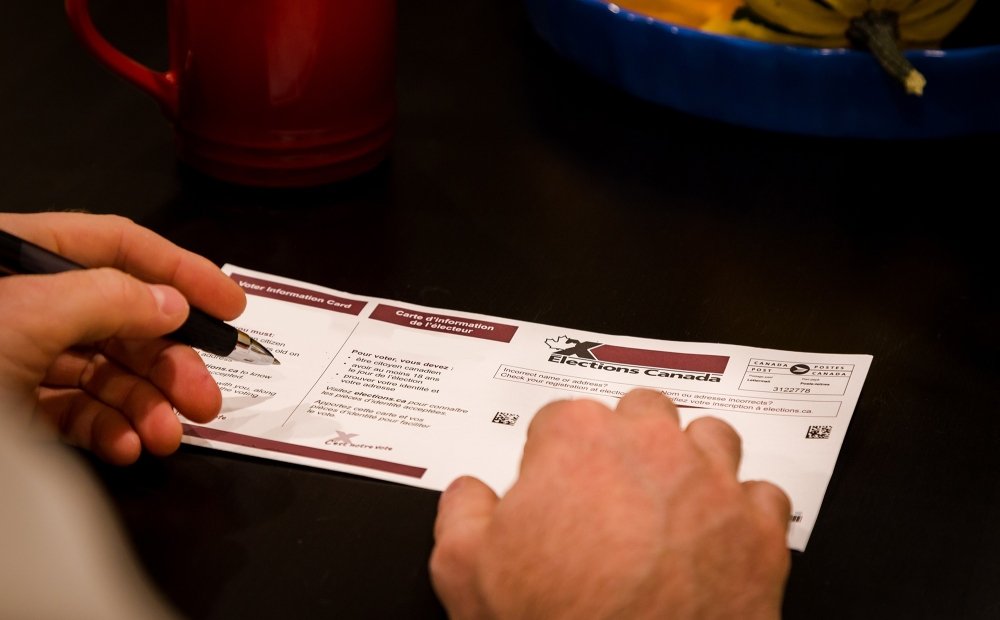Voting Going Viral: COVID-19 and Electoral Best Practices from Saskatchewan

Saskatchewan’s Chief Electoral Officer, Dr. Michael Boda, managed a provincial general election on October 26. A total of 425,670 votes were cast across 3,301 poll locations with approximately 9.5% of ballots cast via mail in a province almost as big as Texas. The COVID-19 pandemic presents special challenges for election administrators and has sparked a conversation about different methodologies to expand a citizen’s access to voting without compromising their health and well-being. How did Elections Saskatchewan do it? How different are Canadian elections to U.S. elections administratively and are there any tips election administrators in the United States can learn from their Canadian neighbors?
Selected Quotes
- “Our 2020 polls, they look very different than in 2016. The protocols include physical distancing and hand sanitizing, barriers between voters and workers, masks being required for workers and scrutineers, and a strong recommendation that all voters wear a mask at the poll, and we provided a mask when a voter didn’t have one of their own. But while I believe we took every reasonable step to make our polls safer, this really wasn’t enough. We also had to ensure that voters knew that the polls would be safe. In the weeks leading to the election, we worked very hard to educate stakeholders, so the voters, scrutineers, election workers, so that if perception (that’s the keyword: perception) of the risk of COVID19 changed in the province, stakeholders would remain convinced that visiting the polls in person would be safe and frankly, I had fundamental concerns about it.”
- “Now, we have about 18,000 people that we connect within the province on an ongoing basis as part of a community of people who help to run elections. I don’t call them the public service, I call them the electoral service. We engage with them on an ongoing basis to elevate the knowledge of how elections run and just create a sense of community. We had to rely on that community in order to get our workers, [...] and what I did was I spent a lot of time with our thought leaders and the media across the province talking about getting involved in democracy even when times are tough.”
- “After the 2016 [voting] process here, I had conducted an assessment and I put forward a variety of items for legislative change but also laid out a roadmap [...] to modernize the process because particularly vis-à-vis the United States, the Canadian process is very manual and it has been pretty much the same in this jurisdiction since the founding of the province. What we had anticipated, and what we are planning for, is to introduce not voting machines but tabulators and electronic poll books into this process. And COVID19 pushed that off to the side without question [...]. I think what has happened during COVID19 with the forced increase of vote-by-mail ballot is part of that overarching goal to offer more opportunities for voting to voters and to spread out that voting. And so, I can’t see a world in which we go backwards.”
- “There are challenges with [virtual voting] in the sense that the secrecy of the ballots is extremely important and the individual on whether they are voting from an internet cafe or at home, there is no way to guarantee their secrecy or that they have actually voted. So there is an element there that is important to consider. In Canada, there is not a jurisdiction that is ready to go all out with that but there are certain tests that are being put forward. The idea of a virtual kind of voting was something that was identified as the gap in the COVID-19 context.”
Speaker

Introduction

Moderator

Hosted By

Canada Institute
The mission of the Wilson Center's Canada Institute is to raise the level of knowledge of Canada in the United States, particularly within the Washington, DC policy community. Research projects, initiatives, podcasts, and publications cover contemporary Canada, US-Canadian relations, North American political economy, and Canada's global role as it intersects with US national interests. Read more
